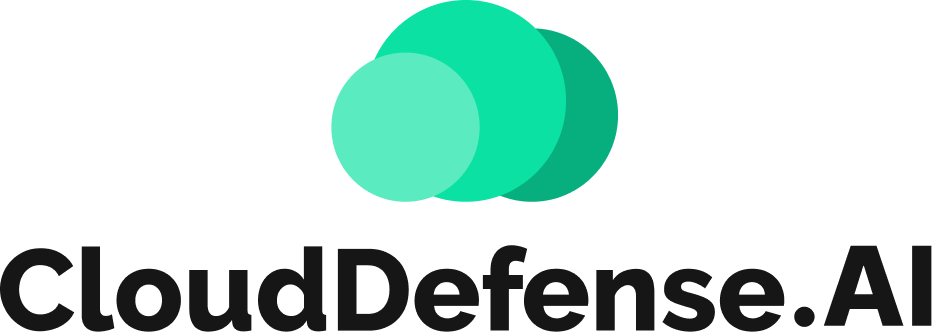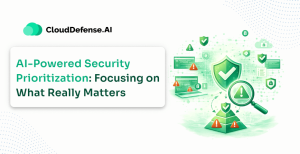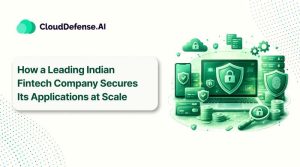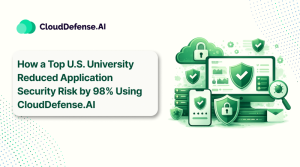What is Private Cloud Security?
Private cloud security includes the techniques, technologies, and policies used to protect data and resources in a private cloud environment. Unlike public clouds, private clouds serve a single organization, providing an isolated and controlled space. This security approach ensures the protection of data, applications, and infrastructure through strong access controls, encryption, intrusion detection systems, and regular audits.
What is the Purpose of a Private Cloud?
The purpose of a private cloud is to provide a secure, dedicated computing environment tailored to a specific organization’s needs. Hosted either on-site or by a third-party provider, private clouds avoid the multi-tenancy of public clouds, ensuring better control over security measures. They are ideal for sensitive and regulated data, offering enhanced data privacy, confidentiality, and compliance.
Private clouds allow enterprises to virtualize their data centers using software from providers like OpenStack, VMware, Cisco, and Microsoft. They support specialized service requirements and customization not possible with public clouds, making them cost-effective for large enterprises with significant security and data sovereignty needs.
How Private Clouds Work?
A private cloud works by creating a secure, dedicated computing environment tailored to a single organization’s high-security requirements. This involves setting up the infrastructure, either on-premises or via third-party providers, and optimizing it with virtualization technologies like VMware and Hyper-V. Network segmentation with VLANs, along with customized security rules, access restrictions, and firewalls, limits the attack surface.
Strong access controls, data encryption, continuous monitoring, and detailed logging further enhance security. Compliance policies are tailored to industry standards such as HIPAA or PCI DSS. Regular patch management and an incident response plan ensure quick recovery from breaches, while redundancy and disaster recovery systems maintain high availability and data continuity.
Employee training programs educate staff on maintaining security, covering topics like phishing prevention and data management. These integrated measures ensure that a private cloud environment is secure, compliant, and resilient against threats.
The Pros and Cons of Private Cloud
Private clouds offer significant advantages for medium to large enterprises. They provide economies of scale that justify the initial investment and offer enhanced security benefits. With private clouds, enterprises have complete control over their data, ensuring maximum security and compliance with data sovereignty regulations. Moreover, private clouds allow for the customization of infrastructure, catering to specific business needs and avoiding the limitations of public cloud offerings.
However, private clouds also present challenges. The upfront capital investment can be substantial, deterring some organizations. Additionally, for businesses with fluctuating resource demands, the fixed costs of private cloud ownership may not align with their financial objectives. Moreover, maintaining a private cloud requires skilled IT staff or service providers, adding to operational complexity and costs compared to the simplified management provided by public cloud providers. Despite these drawbacks, the security and customization benefits make private clouds a compelling choice for enterprises with stable workloads and stringent security requirements.
How to Implement Private Cloud Security?
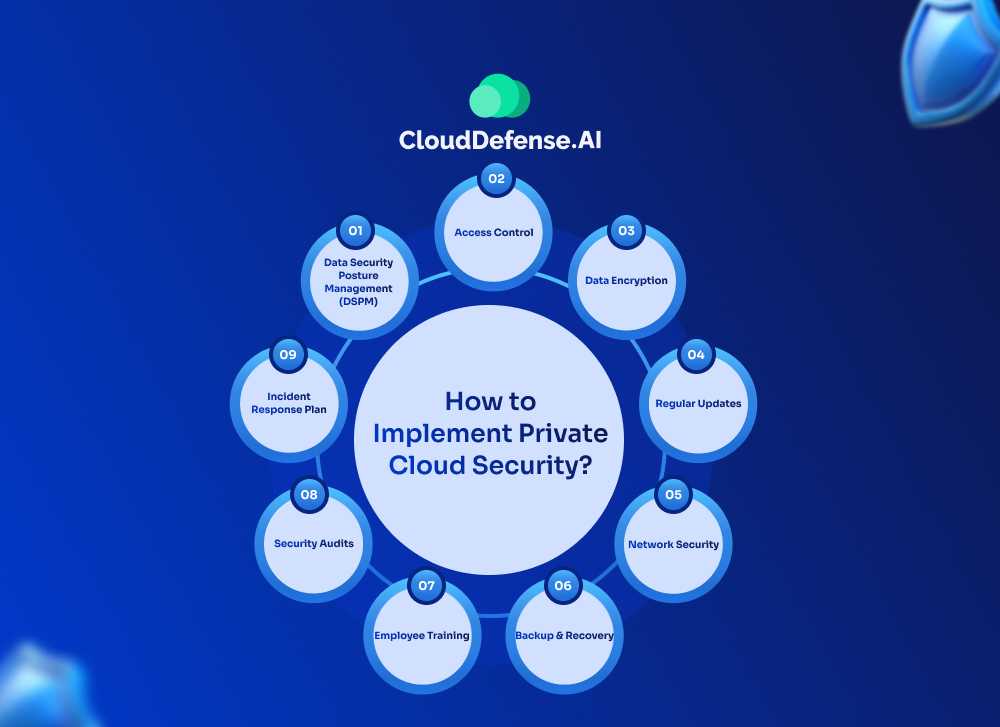
Implementing private cloud security involves a comprehensive approach to protecting data and resources. Here are key steps to enhance security:
1. Data Security Posture Management (DSPM)
Utilize DSPM solutions for continuous assessment and improvement of data security measures, ensuring compliance and proactive issue resolution.
2. Access Control
Enforce strict access control policies and strong authentication methods to restrict unauthorized access to private cloud resources.
3. Data Encryption
Employ strong encryption protocols to encrypt sensitive data at rest and in transit, preventing unauthorized access and protecting information.
4. Regular Updates
Keep software, operating systems, and security solutions up to date with patches and updates to address vulnerabilities and enhance security.
5. Network Security
Implement strong network security measures, including firewalls, intrusion detection systems, and monitoring tools, to detect and mitigate threats to the private cloud environment.
6. Backup and Recovery
Establish regular data backups and test disaster recovery plans to ensure data integrity and availability in the event of a data loss incident.
7. Employee Training
Provide comprehensive security training to employees, educating them on security best practices and raising awareness about common threats like social engineering and phishing attacks.
8. Security Audits
Conduct regular security audits and penetration testing to identify vulnerabilities and areas for improvement in the private cloud environment.
9. Incident Response Plan
Develop a comprehensive incident response plan to promptly address security breaches, minimize their impact, and ensure effective recovery procedures.
Benefits of Private Cloud Security
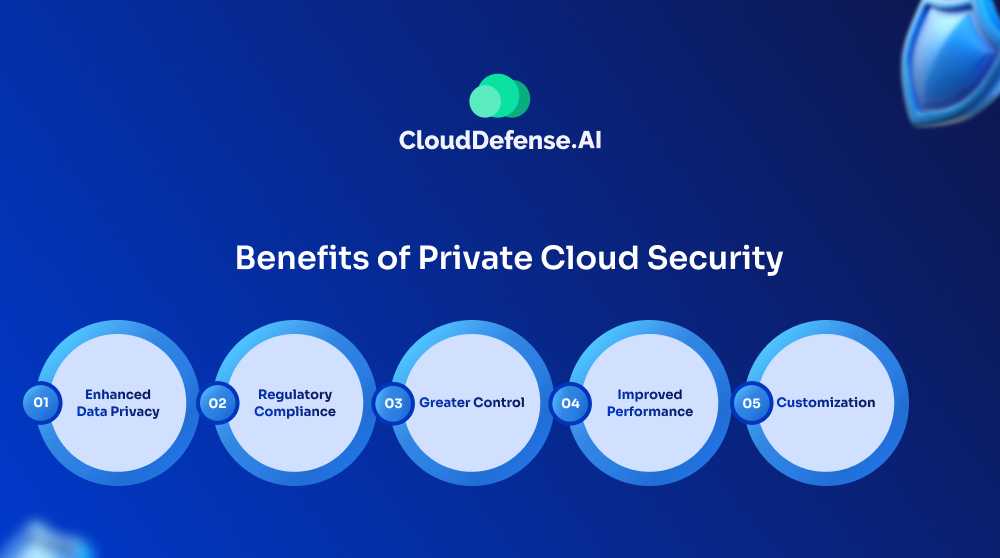
Private cloud security offers several significant benefits for organizations with stringent security requirements:
1. Enhanced Data Privacy
Private clouds provide stronger data privacy by keeping data within the organization’s specialized infrastructure, minimizing the risk of unauthorized access or data disclosure. This is crucial for handling sensitive information such as financial or healthcare records.
2. Regulatory Compliance
Private clouds enable businesses to establish security measures tailored to specific regulatory requirements, reducing the risk of non-compliance and associated penalties. This is particularly important for industries with strict standards like healthcare and finance.
3. Greater Control
Private cloud owners have complete control over their infrastructure, allowing them to deploy security solutions tailored to their needs and respond quickly to security risks and incidents.
4. Improved Performance
Private clouds offer dedicated resources for consistent and predictable application performance, avoiding the performance challenges often encountered in public clouds due to resource pooling.
5. Customization
Private clouds can be customized to meet specific application, workload, and security needs, allowing organizations to strike the right balance between security and operational requirements and adapt to evolving threats effectively.
What Is the Difference Between Private and Public Cloud Security?
Public and private cloud security exhibit several notable differences:
| Aspect | Public Cloud Security | Private Cloud Security |
| Accessibility | Accessible via the public Internet | Typically accessed through dedicated private networks |
| Physical Security | Generally, not a concern for enterprises | Enterprises must manage the physical security of data centers |
| Multi-Tenancy | Multitenant environment, shared among multiple organizations | Dedicated environment for a single organization |
| Responsibility | Shared responsibility model: Cloud provider & user | The user holds full responsibility for the security |
| Security Abstraction | Abstracted security features (e.g., encryption, firewalls) | Requires detailed management of security features and configurations |
| Compliance Flexibility | Limited customization for compliance | Adjustable security measures to meet specific compliance requirements |
| Cost Structure | Pay-as-you-go model, potentially lower cost | Higher initial setup and maintenance costs |
| Resource Allocation | Shared resources among multiple tenants | Dedicated resources for a single organization |
| Scalability | Highly scalable and flexible | Limited scalability options |
Private Cloud Risks and Challenges
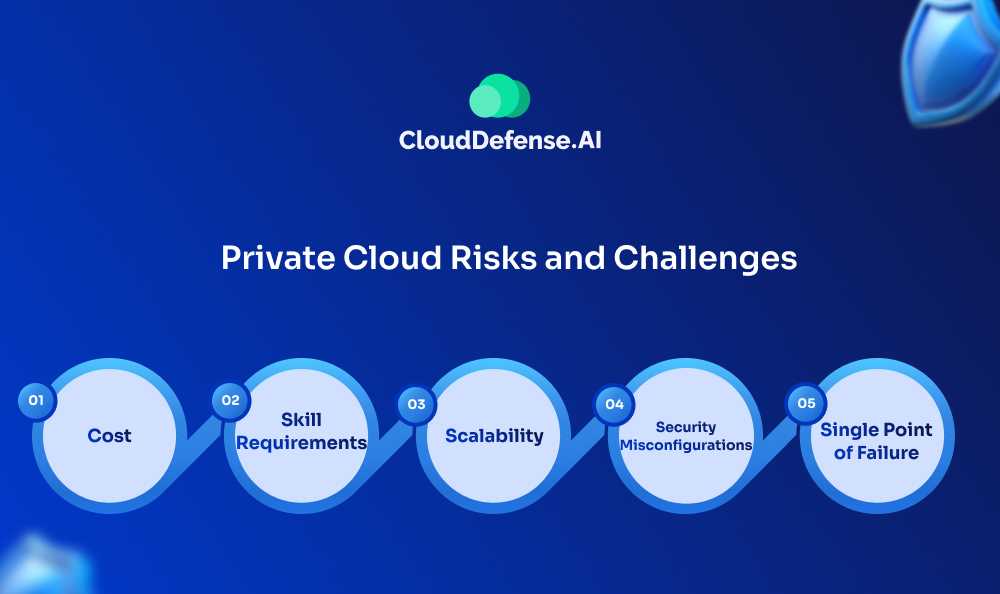
Securing a private cloud environment involves addressing a variety of challenges and risks unique to this type of infrastructure. We have mentioned some of them below.
Cost
Establishing and maintaining a private cloud infrastructure can be costly due to upfront investments in hardware, software, and skilled personnel. Ongoing operational expenses, such as maintenance and security upgrades, further contribute to the total cost of ownership.
Skill Requirements
Managing a private cloud demands expertise in cloud technologies, virtualization, and security. Finding and retaining qualified personnel can be challenging, potentially affecting the effectiveness of security measures.
Scalability
Private clouds have limited scalability compared to public clouds, which offer nearly infinite resources. Scaling a private cloud infrastructure can be complex and expensive, particularly during peak demand periods.
Security Misconfigurations
Human errors or misconfigurations can lead to security vulnerabilities. Incorrectly configured access restrictions, firewall rules, or encryption settings may expose sensitive data or create security loopholes that attackers can exploit.
Single Point of Failure
Without proper redundancy measures, a single point of failure in a private cloud infrastructure can lead to service downtime and data loss in the event of hardware failures or disruptions in key components. Ensuring failover methods and high-availability settings is essential to mitigate this risk.
Private Cloud Security Best Practices
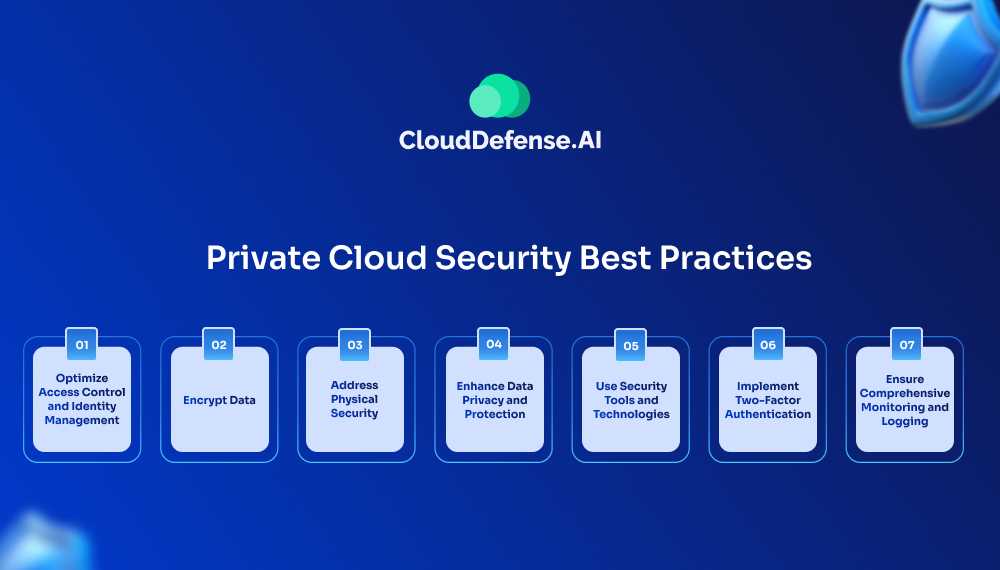
Securing a private cloud environment requires a comprehensive and proactive approach. Here are seven essential best practices for enhancing private cloud security:
1. Optimize Access Control and Identity Management
Implementing Identity Access Management (IAM) is crucial for ensuring that only authorized users have access to sensitive information. IAM assumes that all identities could be potential threats, necessitating multiple rounds of authentication and authorization for anyone trying to access sensitive resources.
2. Encrypt Data
Given the high likelihood of cyberattacks, encrypting data both at rest and in transit is vital. Encryption transforms data into unreadable ciphertext, which requires a key to revert to its original form. This prevents unauthorized users from accessing sensitive information even if they breach the system.
3. Address Physical Security
The physical security of private cloud infrastructures varies based on whether they are on-premises or provided by third parties. On-premises data centers require strong physical defenses like surveillance, security personnel, and fire protection. When using third-party services, it’s crucial to choose providers with strong security reputations.
4. Enhance Data Privacy and Protection
Private clouds offer strong data protection, but enterprises must ensure compliance with laws and regulations. Practices include regular data backups, encryption, zero-trust principles, data hygiene, and proper disposal of hardware containing sensitive information.
5. Use Security Tools and Technologies
Use a consolidated platform of security tools to discover, prioritize, remediate, validate, and report vulnerabilities. Tools such as cloud detection and response, cloud security posture management, and data security posture management are essential for maintaining a secure private cloud environment.
6. Implement Two-Factor Authentication
Strengthen security by requiring two forms of authentication. Beyond a password, use a secondary method like a one-time password or biometric verification to ensure that users are who they claim to be.
7. Ensure Comprehensive Monitoring and Logging
Continuous monitoring and logging of security measures, risks, and vulnerabilities are critical. Regularly update logs and perform real-time monitoring to quickly detect and address potential security threats, enhancing the overall security posture.
Final Words
Private cloud security serves as a linchpin for enterprises, providing tailored protection and regulatory compliance while using the benefits of cloud computing. Despite initial challenges and higher costs, the control, privacy, and security offered by private clouds outweigh the drawbacks.
By adeptly navigating the complexities of private cloud security and harnessing available controls, organizations can confidently protect their data integrity and operational continuity in the tech world.
